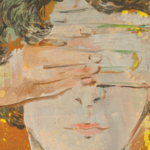Last year, I took part in a London festival’s panel discussion of the work of Agatha Christie. On the panel with me were four other writers, all passionate Agatha fans. One by one, we described what we loved about her work and talked about how much she meant to us. Then it was time for the Q&A, and the questions we were asked by the audience were, by and large, the same ones I’ve been answering on Agatha-themed panels since around 2011: why is she still the no. 1 bestselling novelist of all time? Is her work dated now or is she still relevant? Even though she’s widely and rightfully regarded as a plotting genius, wouldn’t the panel all agree that she’s not actually a very good writer, in a literary sense? In fact, wouldn’t the panelists agree that her prose style is wooden and her characters two-dimensional?
No, the panel would certainly not all agree. Or at least, I hoped they wouldn’t. In my mind, I fiercely disagreed with both of those suggestions as soon as I heard them, and I expected that my fellow panelists would too. I was rather surprised when each of them offered a response that was a sort of compromise: yes, we adore her; yes, her books are addictive and ingeniously plotted . . . but also, yes, we probably would not argue that she was the finest prose stylist or best novelist of all time.
I happened to be the last panelist to answer the question of whether or not Agatha was a good writer, beyond her plotting and storytelling abilities. This was a lucky coincidence, because when it was my turn to speak, what I said had the effect of a twist revealed at the end, as it were—and what could be more appropriate for a panel about Christie? I heard a few shocked titters and saw a few raised eyebrows in the audience when I said, in a manner that I can only describe as peak- denouement-revelation-style, a more diplomatic version of this: ‘You’re all gravely and heinously wrong! Anyone who suggests that Agatha Christie’s actual writing or prose style or novelistic ability is anything other than top-notch is a crazy fool! Not only is she a brilliant plotter and entertainer; she is also a writer of unparalleled excellence! No, not just a great storyteller—actually a great writer in a literary sense! Like Virginia Woolf! Like Charles Dickens! Like Shakespeare!’
Some audience members by now were on the edge of their seats. They had not expected anything like this to happen. Despite the event being a panel billed as a discussion about Christie featuring ardent Christie fans and no one else, the audience expected the normal formula: unanimous agreement that, despite her limitations as a writer, Christie was nevertheless a genius.
And there was I saying, ‘Yes, she was a genius—but, hang on, what limitations?’ Every novelist—every creative artist of any sort—has the limitations that they choose, of course. The art produced by the painter L.S. Lowry is limited in the sense that it contains absolutely no hedgehogs or giraffes. I used Lowry as an example in my answer on the panel that day, as a way in to talking about this common misconception in relation to Christie.
The fact that she wrote in a certain way, her chosen-on-purpose way, is used by some as evidence that she is not a good writer. Many say—indeed, audience members and panelists that very day said—that her characters are two-dimensional and flat, her prose style is wooden and simplistic. I pointed out that one might say that the people painted by Lowry were two dimensional and flat compared with those painted by John Singer Sargent, but that didn’t mean Lowry was any less brilliant or talented a painter or that his work was lacking in artistic merit. In its way, his work is as rich and rewarding as that of Sargent—and the same is true of Christie in relation to, for instance, Virginia Woolf. Her style is not simplistic but, rather, beautifully simple. Her genius is such that she can write book after book that seamlessly blends many opposite ends of many spectrums: the straightforward and the complex, the light and the dark, the resolved and the ambiguous, the traditional and the revolutionary. She is brilliant at conveying depth of character in her own way: a brisk and crisp way that allows far more page space for plot than for introspection—yet we learn every time that it is only by following the precise details of the plot, major and minor, that we are able, finally, to access the third dimension of each character, the part they keep hidden from the rest of the world and from the reader for as long as possible. Without plot, there is no reliable access to character; Christie understood this as well as anyone.
There’s a passage in The Murder at the Vicarage, the first Miss Marple novel, that I always recite to anybody who questions the depth of characterisation or psychological insight in Christie’s work. The vicar’s wife says to her husband, ‘
Agreeing to marry [you] made me feel so powerful . . . The other suitors thought me simply wonderful, and, of course, it would have been very nice for them to have me. But I’m everything you most dislike and disapprove of, and yet you couldn’t withstand me! My vanity couldn’t hold out against that. It’s so much nicer to be a secret and delightful sin to anybody than to be a feather in his cap. I make you frightfully uncomfortable and stir you up the wrong way the whole time, and yet you adore me madly.’
What if we were to regard Agatha Christie’s novel writing—the complete package and all the elements contained therein— as a style she chose and created on purpose rather than a limitation resulting from an inability to do better? What if we focused on what it did enable her to achieve rather than on what it prevented her from achieving—which, we can reasonably assume, was something she wasn’t aiming for in the first place? Wouldn’t that be radical and refreshing? At the panel event, I asked the audience this question. Some, I could see, were tempted to think about Christie in this new and different way. One woman raised her hand and said, ‘I’ve never actually read Agatha Christie—I’ve only ever watched Poirot and Marple on telly—but I don’t think she’s likely to be a proper literary genius like you’re saying because everyone says she’s not that good a writer and that she’s just good at plot. If that’s not true, why do so many people—even people who love her work—say she’s not a properly good writer?’ An excellent question. I had been wondering myself, since hearing my fellow panelists’ answers, how it was possible both to love and underestimate Christie simultaneously. And it was while I was thinking about this and wondering how to answer the question that I had a true moment of revelation. I felt a little like Poirot when he suddenly says, ‘How could I have been so foolish and failed to see what was so obvious?’
Here’s the answer I gave at the event, and I’ve grown more certain of it ever since that day: people think Christie can’t be a literary genius because they know that’s what other people think. That is how we are all groomed and brainwashed and trained to think about her—and so, with a few exceptions, even those who adore her work succumb to the pressure of falling in line with the prevailing orthodoxy. If you don’t believe me, here’s a little experiment you can try out. Next time you’re with a group of highly educated and well-read people, find an opportunity to say, ‘I absolutely love Agatha Christie’s books—though obviously they’re only a bit of fun. I’m not saying she’s a great writer or anything.’ See if anyone expresses any consternation or even the slightest morsel of surprise.
Then try the experiment again with a different group of people, but this time say, ‘I love Agatha Christie, and I think she is one of the greatest literary geniuses the world has ever known—right up there with Dickens, Virginia Woolf and Emily Bronte.’ I’d be extremely surprised if you were not met with peals of incredulous laughter—because this is not what we are told to think about Christie, and, unfortunately, many people are extremely comfortable thinking only what they are told to think.
This, of course, was something Christie understood very well. Time and time again she had either Poirot or Miss Marple point out that if only people would learn to think properly—starting from first principles and using keen observation, a deep understanding of human nature and immaculate logic—then they too would be able to solve complex and cryptic murder mystery puzzles. The inability of most people to think with rational detachment is one of the key themes in Christie’s detective and crime novels.
*
All of which brings me to why I loved reading this volume of essays so much, and why I am delighted to introduce it to you. It was first published in 1977, a year after Christie died, and what’s so fascinating here is that every writer who contributed to the volume has something quite individual and different to say about Christie. Perhaps this is because it was too early, at that point, for any sort of orthodoxy or so-called correct set of views to emerge. Some of the pieces in this book focus on Christie’s personal life while others focus on her work, but there’s a real sense that everyone is writing precisely what they want to write and what they personally think and feel about Agatha. They are—to refer back to a point I made earlier— choosing their own limitations on purpose.
Reading these essays prompted me to ask myself what I would have written if I had travelled back in time to 1977, if I’d been asked to contribute an essay to this volume. I would probably have written a piece exploring an as-yet undiscovered link between And Then There Were None and Murder on the Orient Express. These are Agatha’s two most famous and bestselling novels (though I’m not sure if they were in r977, so I might have needed some extra time-travelling allowance there) . . and they also happen to contain the most powerfully come-uppance-deserving murder victims.
Could there be a connection between these two facts? Could it be that readers love And Then There Were None and Murder on the Orient Express so much partly because both are novels in which you can glean huge satisfaction not only from the solving of the crime and the restoration of order, but also from the murder itself—so that, in effect, you get a kind of double-justice buzz that scores twice the amount of points for the side of goodness against evil?
Yes, I think that’s the essay I would have written. But I was only six in 1977, so I had to wait forty-three years and write this introduction instead.
_____________________________________


















